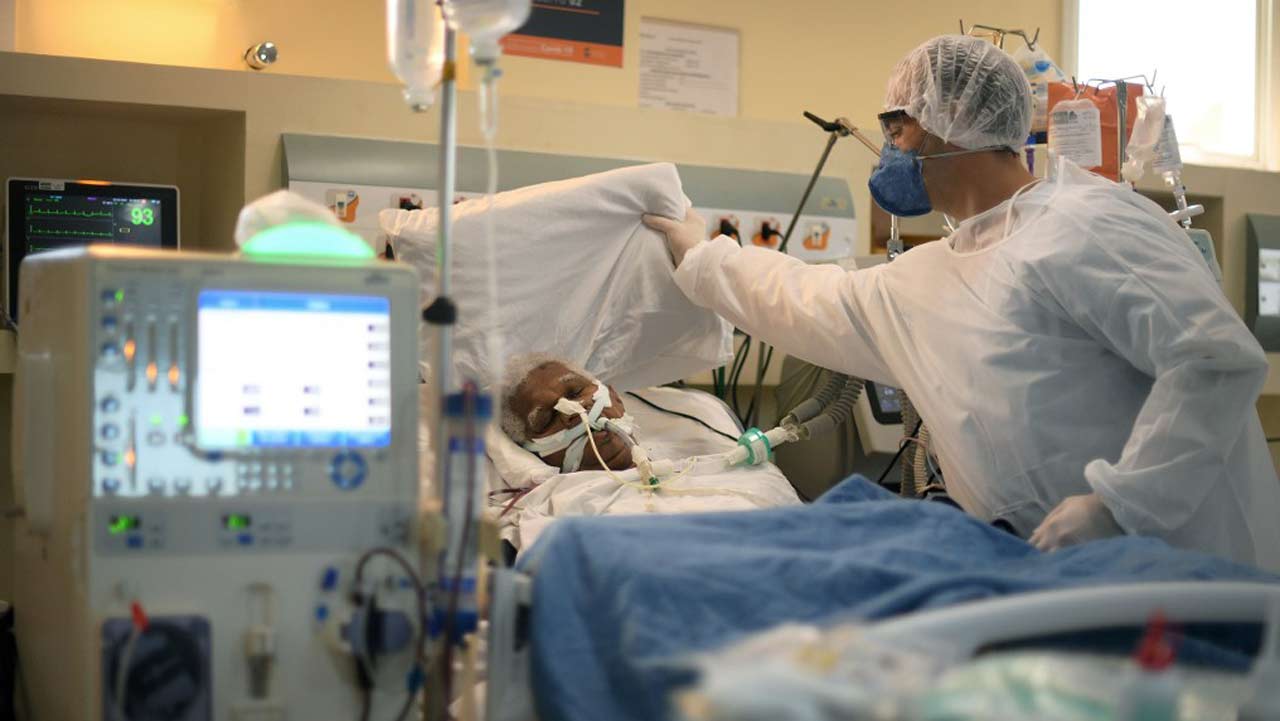Just a few observations about the journalism involved in the Ebola news coverage.
Faye Flam on the Knight Science Journalism Tracker wrote, “Ebola outbreak reaction shows why science writers are necessary.” She points to Maryn McKenna’s Superbug blog, in which Maryn called the “Ebola media scrum…disgraceful.” But she also posts a long list of articles worth reading. Flam mentions a Forbes piece which has apparently been removed. Only the specter of its headline remains in a web search:

CNN drummed up the hype, reporting on a “top secret” serum being used to treat two American missionary workers.

Top secret? Really? To whom?
In response. Reuters Health journalist Andrew Seaman tweeted, “Experimental ≠ secret.”

There are other questions about CNN’s coverage – questions about the dual MD-journalist role of Dr. Sanjay Gupta.
The Daily Beast profiled Gupta. Excerpt:
Expect to see a lot of Gupta in the coming days, especially as the 44-year-old neurosurgeon is also an assistant professor of neurosurgery at Emory’s School of Medicine. Being a member of staff and faculty there has fortuitously given Gupta a major “in” on one of the biggest medical stories of the year.
Indeed his next aim, he reveals to The Daily Beast, is to film the first U.S. patient, Dr. Kent Brantly, in the isolation unit he is in. “Yes, I would like to follow this every step of the way. To actually see it is really important.” Talks are underway to see if and when Gupta can report from the isolation unit, and speak to Brantly, who contracted Ebola in Monrovia, Liberia, in July.
“Think of him being inside a glass box within a glass box,” Gupta says. “There is a space between the boxes where people in protective garb can go in and out from. We would be outside the outer glass box and talk to him via an intercom system. Viewers will be able to see him and hear what he has to say.” Gupta has “no worries” for his own health. “Ebola is not airborne.” One would be safe “even if you are 10 feet away and there were no barriers.”
Were there any worries about the journalism ethics of this situation?
Is it proper for a faculty member of an institution to have “a major ‘in’ ” on a story based at that same institution?
How would we feel if CNN’s White House correspondent actually worked on the White House staff?
Dr. Steve Miles of the University of Minnesota Center for Bioethics wrote me this reaction:
“The front line of the Ebola outbreak is west Africa. Dr. Gupta knows this from his trips to Haiti and Afghanistan. The isolation facility at Emory is far behind the lines. Dr. Gupta’s role here as a journalist is to explain Ebola calmly, emphasize the advantage to medical science and to other potentially afflicted persons by having this person in a controlled environment. It is not to showcase himself or to exploit a human drama by pressing his access to a clinical facility.”
I know, from social media conversations I’ve had with medical and science journalists, that Gupta’s role in the CNN Ebola coverage is causing concerns.
Issues about his dual role have been raised before:
Ethical issues for CNN & Sanjay Gupta
A prime example of the problem with some TV physician-”journalists”
Who teaches journalism ethics to physician-reporters?
An examination of the ethics of MD-reporter involvement in Haiti
Disclosure: I worked in the CNN Medical News unit long ago – more than 24 years ago – so far in the past as to have no relevance to this discussion. But I disclose that, nonetheless.
Addendum on August 5:
Another topic worth noting is the reporting that credits the experimental (or secret, as CNN called it) serum for saving an Ebola patient’s life.
CNN yesterday said it “likely saved his life.”
On last night’s network evening news, NBC reported that Dr. Kent Brantly, the American who was flown back to the US after contracting the Ebola virus in Africa, has “made a remarkable improvement. After one dose of a rare, experimental drug never before used on humans.”
But CBS’s Dr. Jon LaPook reported, appropriately: “If Dr. Brantly is improving, it’s unclear if that’s from the serum, his own body fighting the infection, or a combination.”
By Gary Schwitzer
Health care journalism, Healthnews Review
ABUJA: Training Schedule for Basic Life Support BLS, Pediatric Advanced Life Support (PALS), Advanced Cardiovascular Life Support ACLS, First Aid, CPR, AED
PORTHARCOURT: Training Schedule for Basic Life Support BLS, Pediatric Advanced Life Support (PALS), Advanced Cardiovascular Life Support ACLS, First Aid, CPR, AED
LAGOS: Training Schedule for Basic Life Support BLS, Pediatric Advanced Life Support (PALS), Advanced Cardiovascular Life Support ACLS, First Aid, CPR, AED




